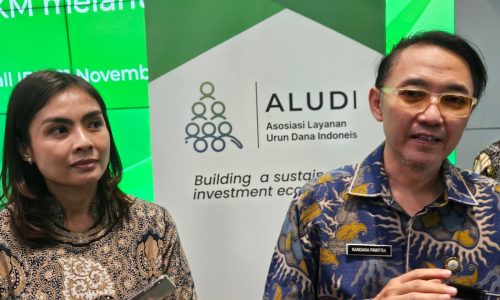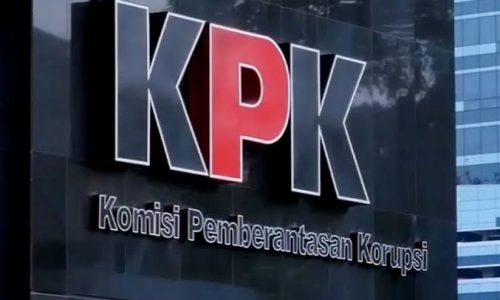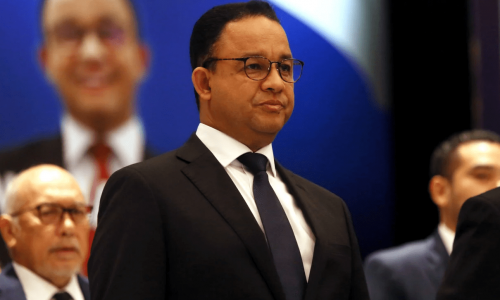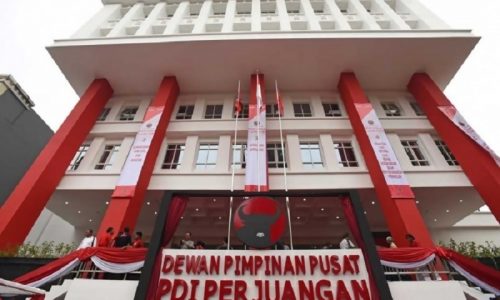The National Conference on Critical Minerals Indonesia (KNMKI), held on October 9-10, 2024, has produced a joint communiqué that calls on all stakeholders in the critical minerals sector, particularly nickel, to prioritize human rights of the marginalized social groups and sustainable environment and social governance.
The joint communiqué asks the Prabowo Subianto-Gibran Rakabuming Raka administration that will be inaugurated on October 20, 2024 not to use nickel downstreaming as a mere tool for economic growth as reality on the ground shows that there are many negative impacts threatening the welfare of the community and the environment around the nickel downstreaming area.
The group said that nickel downstreaming should be a strategic move to increase added value and create decent jobs. However, they still doubt the government’s commitment to ensuring equitable and sustainable growth.
The joint communiqué, produced by over 60 organizations/communities (civil society organizations, affected communities and unions of nickel processing industry workers), affirms that mineral resources management should take human rights of the marginalized social groups and environmental impacts more seriously.
Committee chairperson and executive director of Transformasi untuk Keadilan Indonesia (TuK INDONESIA) or Transformation for Indonesian Justice, Linda Rosalina, emphasized that the conference was crucial in order to immediately reduce the destructive impact of the mining sector and critical mineral industry.
“We are determined to fight for fairer, more sustainable nickel governance that respects the rights of local communities and environmental protection. We urge the Prabowo-Gibran government to listen directly to the voices of affected residents and immediately take concrete steps in formulating inclusive and responsible policies,” Linda said in a statement as quoted on Monday, October 14, 2024.
“Nickel downstreaming should not only benefit a handful of parties, but must protect community rights and ensure environmental sustainability for common welfare,” she added.
Nickel demand and environmental impacts
Planning for nickel demand in Indonesia has not been adequately clarified in national strategic documents, including the he National Long Term Development Plan (RPJPN), National Medium-Term Development Plan (RPJMN), or other derivative documents.
Although the nickel industry continues to grow rapidly, attention to environmental impacts, especially carbon emissions, is still minimal. This is evident from the lack of environmental monitoring of the industry, which is clearly having a negative impact on the ecosystem.
A group concerned in banking system and industry financing, the Bank Indonesia Response Coalition, highlighted this worsening condition due to massive financing in the nickel sector which is also supported by regulations that place nickel as a basic need for green energy transition.
“Whereas banks as corporate capital lenders have a role as catalysts and accelerators for financing, the reckless exploitation of nickel has actually caused environmental damage and community conflict. Banks need to integrate responsible financing practices that support the implementation of the fulfillment of human rights and environmental preservation,” Herni Ramdlaningrum, an activist with the Bank Indonesia Response Coalition, said.
She cited that supervision of nickel mining companies is also far from optimal, especially at the regional level, while the limited authority of provincial governments and overlapping policies between Jakarta and the regions further complicate the situation.
“As a result, law enforcement against environmental violations is often ineffective.
Furthermore, the 2020 Mineral and Coal Mining Law and Government Regulation in Lieu of Law No. 2/2022 on Job Creation, which centralize the authority for operating permits at the central level, narrow the space for civil society to conduct oversight,” she said.
The coalition also sees recovery mechanisms for affected communities often stagnate, especially in areas where local governments have conflicts of interest due to shareholdings in the nickel mining industry.
“The nickel industry plays an important role in supporting energy transition, but the sector’s rapid growth must be couple with serious attention to environmental and social impacts. Weaknesses in national strategic planning, coupled with governance that is far from transparent, as well as weak oversight of the nickel mining industry, are exacerbating the ongoing environmental crisis,” Meliana Lumbantoruan, Deputy Director of Publish What You Pay (PWYP) Indonesia, said.
She was of the opinion that the government needs to strengthen the governance of the nickel sector by improving transparency, accountability and coordination between institutions, both at the central and regional levels. In addition, active involvement of civil society in monitoring must also be guaranteed, so that industrial activities run more responsibly and recovery for affected communities can be realized more effectively.
Olisias Gultom, Director of Sahita Institute (HINTS), emphasized that all stakeholders need to beware that corrupt practices have contributed to environmental damages and marginalized local communities in this industry. He cited the lack of alignment on access to decent livelihoods for workers.
“Industrial development or downstreaming must be in line with the principles of humanity and social justice. It is urgent that this is done before bigger mistakes are made and severe damages threatened all aspects of life,” he said.









